Not long ago at the remarkable Emmaüs charity outlet in Parempuyre, I picked up a couple of out-of-print books by the historian Pierre Décamps (1912-2004): 1940-1944, la Gironde en Images (published by SODIM in 1977) and Bordeaux sous l’occupation (Ouest France, 1983). Both feature some incredible photographs documenting Bordeaux during the Second World War. I set off in search of the same locations in order to merge the 1940s and the 2020s in single shots. The accompanying captions are adaptations of the information shared by Pierre Décamps in the books, all original photos were credited to the Bordeaux Centre Jean Moulin collection.
 |
| These ladies seem to be enjoying their city-centre stroll past fortified shelters and blockhouses built by the Germans at the base of Pey-Berland tower… |
 |
| During the Second World War, le Théâtre Français (now CGR Bordeaux Le Français cinema) was a cinema which was reserved for German army soldiers, hence the "Soldaten Kino" sign (Soldiers' Cinema). |
 |
| "French [citizens]... Listen every day to the voice of the Reich". German Information Service sign in front of the Jardin Public terrace. |
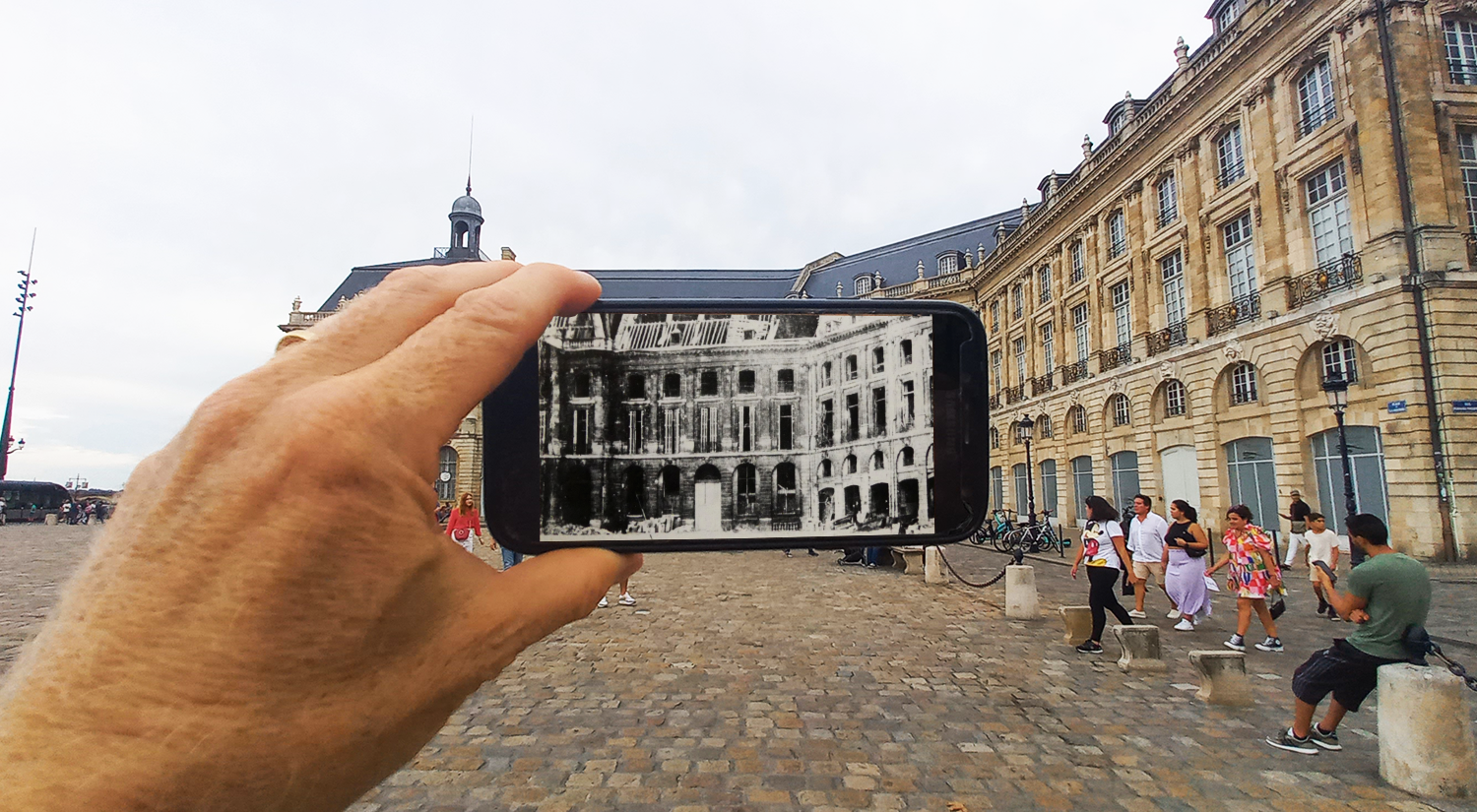 |
| Place de la Bourse: the British bombardment on the night of December 8-9, 1940 certainly left its mark. |
 |
It’s all about the bronze: removal, on December 6, 1941, of the bronze statue of former president Sadi Carnot, erected on Place Jean-Jaurès. |
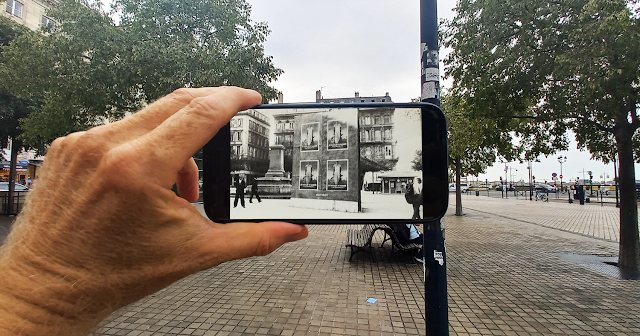 |
Next to the now empty plinth, the sign reads "By working in Germany, you'll be an ambassador for French quality". |
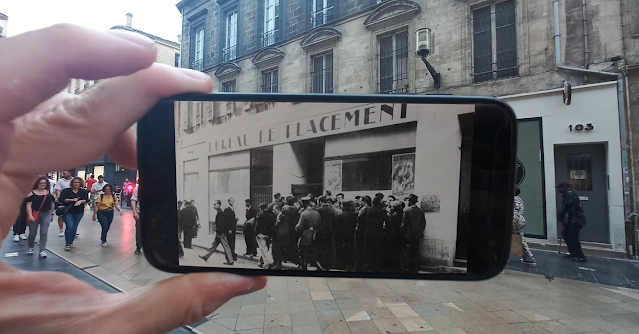 |
| French citizens enrolling to work for Germany show up at the "Bureau de placement", 103, rue Sainte-Catherine. |
 |
| August 28th 1944, a group of "Maquisard" Resistants from the Blaye area pictured on Rue Esprit-des-Lois in Bordeaux (the road that runs alongside the Grand Théâtre opera house), just as the city was being liberated. |
 |
| Members of the FFI (Forces françaises de l’intérieur) are celebrated by a crowd of happy onlookers on Place Gambetta. |




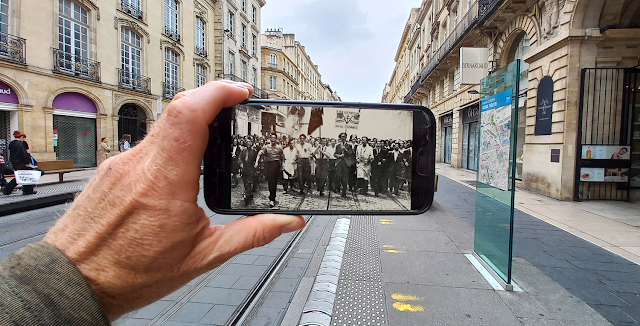
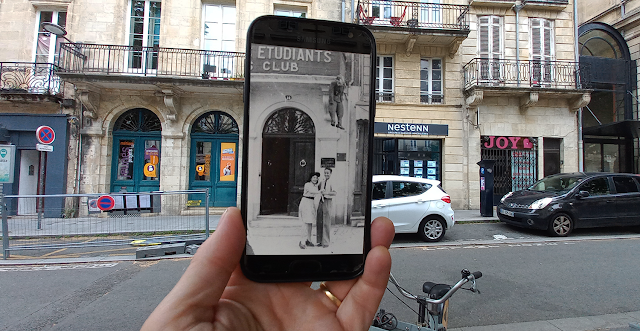









excellent
ReplyDelete